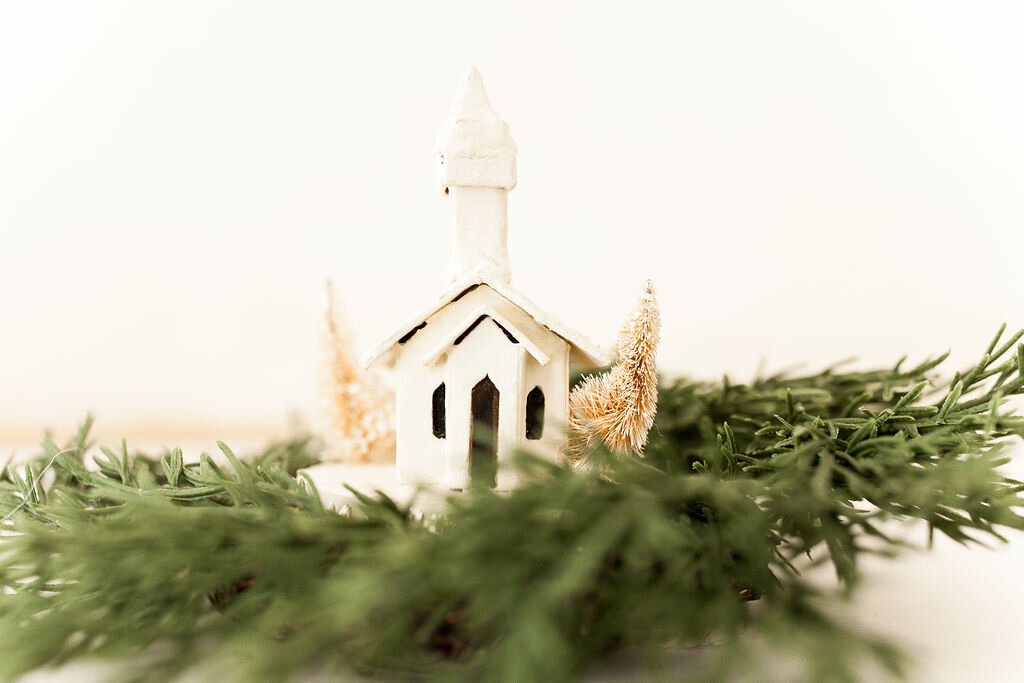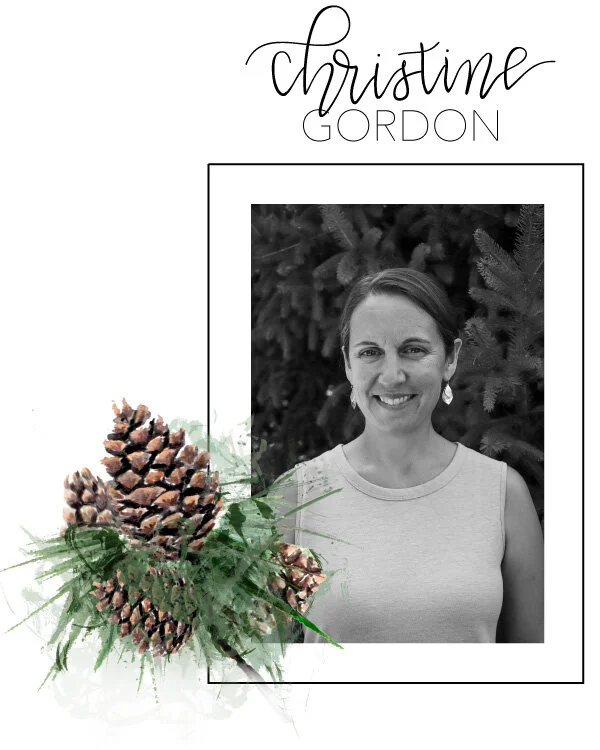I could smell the sausage stuffing even before we entered the house. It was the best kind of stuffing, my grandmother’s recipe, in which the salty grease seeped into the homemade bread scraps and made you think total satisfaction could be found on a plate. It would be surrounded by buttery mashed potatoes, a perfectly roasted turkey, bright cranberry sauce, and warm, flaky pumpkin pie. It was the annual Christmas Eve feast with all of my cousins, uncles, aunts, and grandparents. After stuffing ourselves, we kids would sit in the living room in front of the mound of presents, impatiently waiting for the adults to finish the dishes so that we could open the colorful boxes. Surely in those ribboned packages, we always imagined, were the answers to all of our hopes and dreams.
But before the Christmas Eve feast and the opening of presents was the waiting—the endless waiting—to get to that day. Sometimes as a child I thought it would never come. And inevitably, once the last plate was scraped and the last present opened, I felt the unavoidable disappointment that always accompanies the end of Christmas. I felt the unsatisfied ache, the unmet longing. Ultimate satisfaction was found neither on a plate nor in a box.
The ache we feel after experiencing a wonderful meal with friends or enjoying a great gift is not a message to our souls that they should stop wanting. On the contrary, the ache reminds us that we long for greater things: a greater feast, and a greater gift.
Isaiah 25:6–8 describes a scene that seems almost too good to be true. “On this mountain the LORD of Hosts will make for all peoples a feast of rich food, a feast of well-aged wine, of rich food full of marrow, of aged wine well refined. And he will swallow up on this mountain the covering that is cast over all peoples, the veil that is spread over all nations. He will swallow up death forever; and the Lord GOD will wipe away tears from all faces, and the reproach of his people he will take away from all the earth, for the LORD has spoken.”
This is no last-minute, thrown-together meal; it’s a feast to end all feasts. This is the best meat, the high-end beef, lamb, or pork you always admire in the butcher case but never buy because of the price, spiced and cooked to perfection. This is the best wine, with the most flavor, wonderfully aged. This is a sensory, sumptuous feast. It’s a feast with no guilt, no worry about food allergies or calories. It is not rushed or interrupted by crying babies or arguing toddlers. It is leisurely, enjoyable, celebratory, exquisitely comfortable and restful. But it also carries no temptation of idolatry. While in this broken world we often attempt to make good things ultimate, and make idols out of gifts like good food or friends at a table. At this feast of the Lamb, no such struggle will distract us. Our enjoyment of food and others will be perfectly holy and will bestow glory on Jesus.
But the gift is even better than the feast.
“It will be said on that day, ‘Behold, this is our God; we have waited for him, that he might save us.’” (Isaiah 25:9a). “And I heard a loud voice from the throne saying, ‘Behold, the dwelling place of God is with man. He will dwell with them, and they will be his people,and God himself will be with them as their God. He will wipe away every tear from their eyes, and death shall be no more, neither shall there be mourning, nor crying, nor pain anymore, for the former things have passed away’” (Revelation 21:3–4).
All the waiting will be over. All the questioning and wondering about whether God is really as good as we hope he might be will be finished. Doubt will have no place. Complaint will have no opportunity. Our self-hatred will disappear in the face of our God-given glory. Tears and loss will only be a memory. The longing that our souls now feel will be extinct. The ache of our hearts will finally be relieved. God himself will join us at the feast. He will no longer be the object of our faith, but the host of our table.
But how can we be sure this is true? Why should we think he will come back? Because he is the gift who came the first time. Because he left the glory of heaven and entered into our filthy, broken world that we might be a guest at his feast. What we celebrate today, Christmas Day, is his incarnation. He willingly took the form of a servant and became a human. His first coming points us toward his second.
Dear one, as you tend to the details of whatever meals you enjoy today, let them point you to the ultimate feast prepared by your God. And as you navigate the dynamics of the relationships at your table, let them remind you of the One who humbled himself to enter your world, lived a perfect life that he might give you his record, and then died and was resurrected to offer you entrance to the feast where he himself will welcome you to the table.
QUESTIONS FOR REFLECTION/ APPLICATION:
When you think about heaven, have you previously imagined a physical place with food and drink?
What do you think it would feel like to spend an hour without anxiety, sadness, pain, or temptation?
How can the certainty of God celebrating this feast with you and remaining with you forever as your God help you celebrate this Christmas Day?
Christine B. Gordon, MATS, if wife to Michael and mother of three. She earned her Master of Arts in Theological Studies at Covenant Seminary. She currently lives in St. Louis, Missouri where she writes Bible studies with her writing partner, Hope Blanton. (Studies available on the website at: www.athisfeetonline.com on Instagram ). She is a frequent speaker for retreats and churches, and loves to walk with friends, make music with other people, and eat anything her husband cooks. She can be reached at cburkleygordon@gmail.com.


